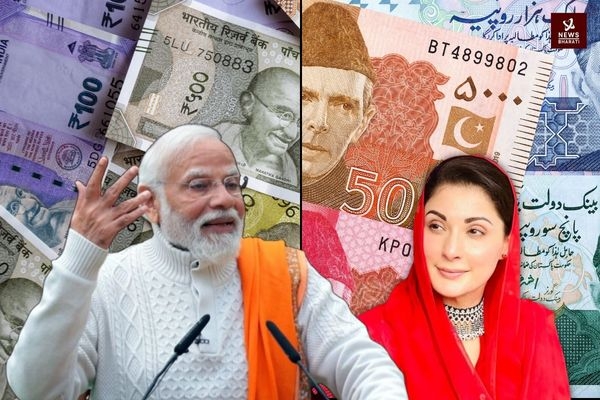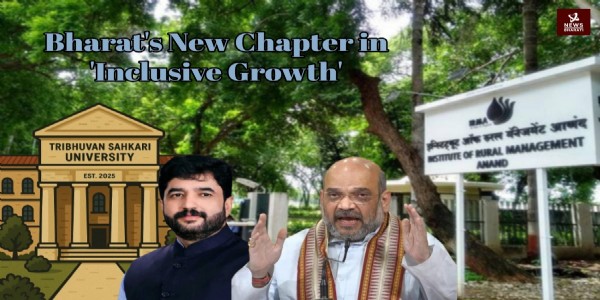Narendra Modi's Economic Model echoed in Maryam Nawaz's Plans, says Exiled PoK Activist
Maryam Nawaz, the daughter of former Pakistan Prime Minister Nawaz Sharif, made history by becoming the first female chief minister in the country.
Total Views | 117
Lahore, Feb 27: Amjad Ayub Mirza, a rights activist from the exiled Pakistan-occupied Kashmir (PoK), has drawn parallels between the development plan of Maryam Nawaz , the newly elected Chief Minister of Pakistan's Punjab province, and the economic model of Indian Prime Minister Narendra Modi.

Mirza highlighted the similarities in the focus on smart cities, economic activities, markets, road networks for farmers, and healthcare systems, suggesting that Maryam's proposed initiatives mirror the Modi economic model.
Maryam Nawaz, the daughter of former Pakistan Prime Minister Nawaz Sharif, made history by becoming the first female chief minister in the country. In her victory speech, she outlined comprehensive plans for Punjab, emphasizing her goal to transform the province into an economic hub. However, Mirza expressed skepticism about the practicality of implementing Maryam's policies, questioning how success could be achieved without interference from the bureaucracy, Pakistani deep state, and establishment.
Mirza raised concerns about the formidable military presence in Punjab, noting that the armed forces in Pakistan have significant commercial entities and a vast business empire. He speculated on the challenges Maryam may face in competing with the military-industrial complex, as the military's involvement in various sectors could hinder the private sector's growth.
#Pakistan Economic Net congratulates Maryam Nawaz Sharif on becoming the First Female Chief Minister of #Punjab. #وزیر_اعلی_مریم_نواز@MaryamNSharif @ShazaFK @AzmaBokhariPMLN @bushraanjumbutt pic.twitter.com/NtFFRh7jum
— Pakistan Economic Net (@NetPakistan) February 26, 2024
Highlighting the dominance of a strong military economy in Punjab, Mirza cast doubt on Maryam Nawaz's chances of success. Maryam secured 220 votes in the election, defeating her opponent Rana Aftab Ahmad of the Sunni Ittehad Council, who received zero votes due to a boycott by SIC members.
Also read: Pakistan: mob assaults woman for wearing a dress with random arabic calligraphy, mistakes it as quranic verses
Despite facing competition in the election, Maryam's clear majority in the house ensured her victory. The oath-taking ceremony for Punjab Assembly members took place earlier, with 321 out of 371 members swearing in.
--
Bharati Web







